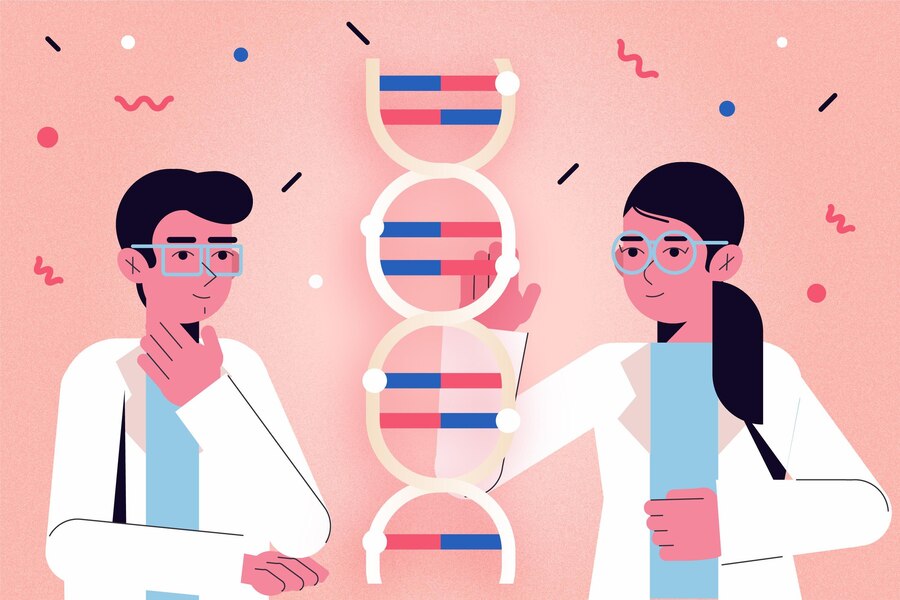Epigenetics refers to changes in gene expression that do not involve alterations in the DNA sequence. These changes are crucial in regulating various cellular processes and can significantly impact cancer development and progression. Understanding the role of epigenetic modifications in cancer has opened new avenues for therapeutic interventions aimed at reversing or modulating these changes to treat cancer effectively.
Understanding Epigenetics in Cancer
-
Key Epigenetic Mechanisms:
-
DNA Methylation:
DNA methylation involves the addition of a methyl group to the DNA molecule, typically at cytosine bases. Aberrant DNA methylation patterns, such as hypermethylation of tumor suppressor genes or hypomethylation of oncogenes, can contribute to cancer development.-
Histone Modification:
Histone proteins, around which DNA is wrapped, can undergo various modifications, including acetylation, methylation, and phosphorylation. These modifications can alter chromatin structure and gene expression, influencing cancer cell behavior.-
Non-Coding RNAs:
Non-coding RNAs, including microRNAs (miRNAs) and long non-coding RNAs (lncRNAs), play a significant role in gene regulation. Dysregulation of non-coding RNAs can contribute to cancer progression by affecting key signaling pathways. -
Epigenetic Changes in Cancer
-
Aberrant DNA Methylation:
-
Hypermethylation of tumor suppressor genes can lead to their silencing, preventing them from inhibiting cancer cell growth. Conversely, hypomethylation of oncogenes can result in their overexpression, promoting cancer development.
-
Example: Hypermethylation of the promoter region of the CDKN2A gene, which encodes the tumor suppressor protein p16, is common in various cancers, leading to uncontrolled cell proliferation.
-
-
Histone Modifications:
-
Alterations in histone acetylation and methylation can disrupt normal gene expression patterns, contributing to cancer progression. For instance, loss of histone acetylation can lead to chromatin compaction and gene silencing.
-
Example: Overexpression of histone deacetylases (HDACs) in cancer cells can result in the deacetylation and subsequent repression of tumor suppressor genes.
-
-
Non-Coding RNA Dysregulation:
-
miRNAs can act as oncogenes or tumor suppressors, depending on their target genes. Dysregulation of miRNAs can disrupt normal cellular processes and promote cancer.
-
Example: miR-21 is often overexpressed in various cancers and targets tumor suppressor genes, contributing to cancer cell survival and proliferation.
-
Epigenetic Therapies in Cancer Treatment
-
DNA Methyltransferase Inhibitors (DNMTis):
-
DNMT inhibitors, such as azacitidine and decitabine, can reverse abnormal DNA methylation patterns, reactivating silenced tumor suppressor genes and inhibiting cancer cell growth.
-
Example: Azacitidine is approved for the treatment of myelodysplastic syndromes (MDS) and has shown efficacy in reactivating silenced genes.
-
-
Histone Deacetylase Inhibitors (HDACis):
-
HDAC inhibitors, such as vorinostat and romidepsin, can restore normal acetylation levels, leading to the reactivation of silenced genes and induction of cancer cell death.
-
Example: Vorinostat is approved for the treatment of cutaneous T-cell lymphoma (CTCL) and works by inhibiting HDAC activity.
-
-
miRNA-Based Therapies:
-
Therapeutic strategies targeting miRNAs include miRNA mimics to restore tumor suppressor miRNAs or anti-miRNAs to inhibit oncogenic miRNAs.
-
Example: MRX34, a miR-34a mimic, was tested in clinical trials for various cancers to restore the tumor suppressive function of miR-34a.
-
-
Combination Therapies:
-
Combining epigenetic drugs with other therapeutic modalities, such as chemotherapy, immunotherapy, or targeted therapy, can enhance treatment efficacy and overcome resistance.
-
Example: Combining DNMT inhibitors with immune checkpoint inhibitors has shown promise in enhancing anti-tumor immune responses.
-
Future Directions and Challenges
-
Precision Epigenetics:
-
Developing precision epigenetic therapies tailored to individual patients based on their specific epigenetic alterations holds great potential for improving treatment outcomes.
-
-
Biomarker Development:
-
Identifying reliable epigenetic biomarkers for early cancer detection, prognosis, and monitoring treatment response is a critical area of research.
-
-
Overcoming Resistance:
-
Understanding the mechanisms of resistance to epigenetic therapies and developing strategies to overcome this resistance are essential for maximizing the therapeutic potential of these agents.
-
-
Epigenetic Editing:
-
Advances in gene editing technologies, such as CRISPR-Cas9, offer the potential for precise epigenetic editing to correct abnormal epigenetic modifications in cancer cells.
-




